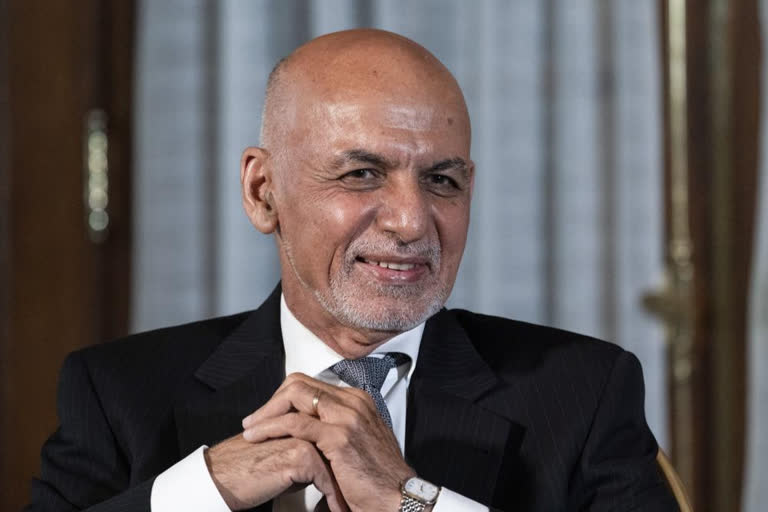Islamabad: Afghanistan's former president said he had no choice but to abruptly leave Kabul as the Taliban closed in and denied an agreement was in the works for a peaceful takeover, disputing the accounts of former Afghan and US officials.
Former President Ashraf Ghani said in an interview that aired Thursday that an adviser gave him just minutes to decide to abandon the capital city. He also denied widespread accusations that he left Afghanistan with millions in stolen money.
Ghani's sudden and secret departure Aug 15 left the city rudderless as US and NATO forces were in the final stages of their chaotic withdrawal from the country after 20 years.
On the morning of that day, I had no inkling that by late afternoon I would be leaving, Ghani told BBC radio.
His remarks conflicted with other accounts.
Former President Hamid Karzai old the Associated Press in an interview earlier this month that Ghani's departure scuttled the opportunity for government negotiators, including himself and peace council chairman Abdullah Abdullah, to reach an 11th-hour agreement with the Taliban, who had committed to staying outside the capital.
After calling the government defense minister Bismillah Khan, the interior minister and police chief and discovering all had fled the capital, Karzai said he invited the Taliban into Kabul to protect the population so that the country, the city doesn't fall into chaos and the unwanted elements who would probably loot the country, loot shops.
But Ghani in his radio interview with British General Sir Nick Carter, former chief of defence staff, said he fled to prevent the destruction of Kabul, claiming two rival Taliban factions were bearing down on the city and were ready to enter and wage a bitter battle for control. There was no evidence upon the Taliban entry of the rival factions Ghani referred to.
Also Read: Wretched Conditions In Afghanistan; People Suffer Under Taliban
The insurgent force quickly took control of the palace and according to humanitarian aid workers, who spoke on condition of anonymity because they wanted to speak privately, and who were there at the time, the Taliban moved to protect their compounds.
Still, the Taliban's entry into the capital was met with widespread fear and a deep longing by many to flee their desperately poor homeland despite billions of international money over the 20 years the US-backed governments had been in power.
Ghani in his interview denied widespread accusations that he left Afghanistan with a cache of stolen money. The US Special Inspector General for Afghanistan Reconstruction John Sopko has been tasked with investigating those allegations.
Successive Afghan governments, as well as independent foreign and Afghan contractors, have been accused of widespread corruption over the last 20 years with dozens of reports by Sopko documenting the most egregious incidents of corruption.
Washington has spent $146 billion on reconstruction in Afghanistan since the overthrow of the Taliban in 2001, yet even before the insurgents returned in August, the poverty level in Afghanistan was at 54 per cent.
Earlier this week Organized Crime and Corruption Reporting Project, an investigative reporting organisation with 150 journalists in more than 30 countries, listed Ghani among the world's most corrupt leaders.
Belarus President Aleksandr Lukashenko was named the most corrupt with Ghani, Syrian President Bashar al-Assad, Turkey's President Recep Tayyip Erdogan and former Austrian Chancellor Sebastian Kurz among the finalists for the title of most corrupt.
After being told by his national security adviser Hamdullah Mohib that his personal protection force was not capable of defending him, Ghani said, he decided to leave. Saying Mohib, who was literally terrified, gave him just two minutes to decide whether to leave, Ghani insisted he was not sure where he would be taken even after he was on the helicopter getting ready to evacuate Kabul.
Ghani did not address the rapid and swift collapse of the Afghan military in the weeks leading up to the Taliban's final arrival in Kabul but he did blame an agreement the US signed with the Taliban in 2020 for the eventual collapse of his government.
That agreement laid out conditions for the final withdrawal of the remaining US and NATO forces ending America's longest war. It also provided for the release of 5,000 Taliban prisoners, which Ghani said strengthened the insurgent force.
AP



